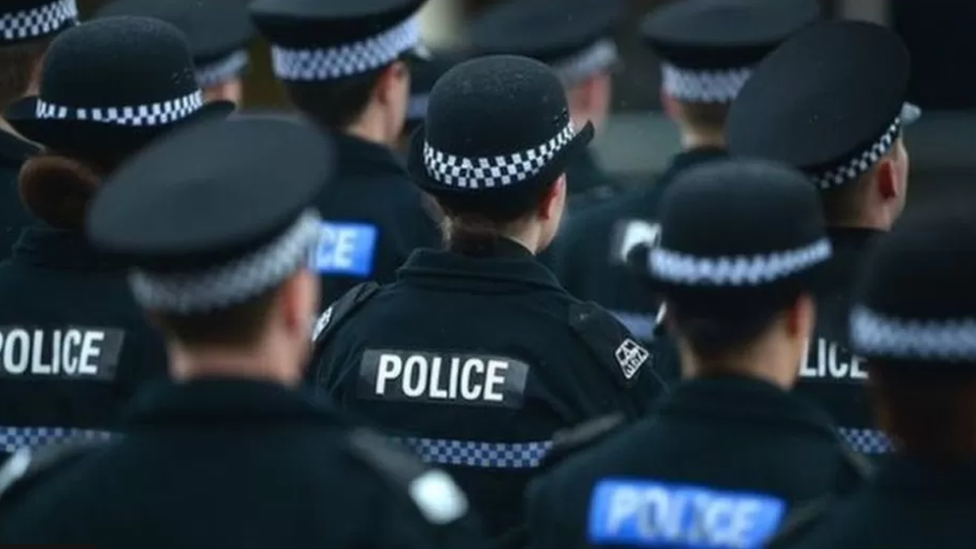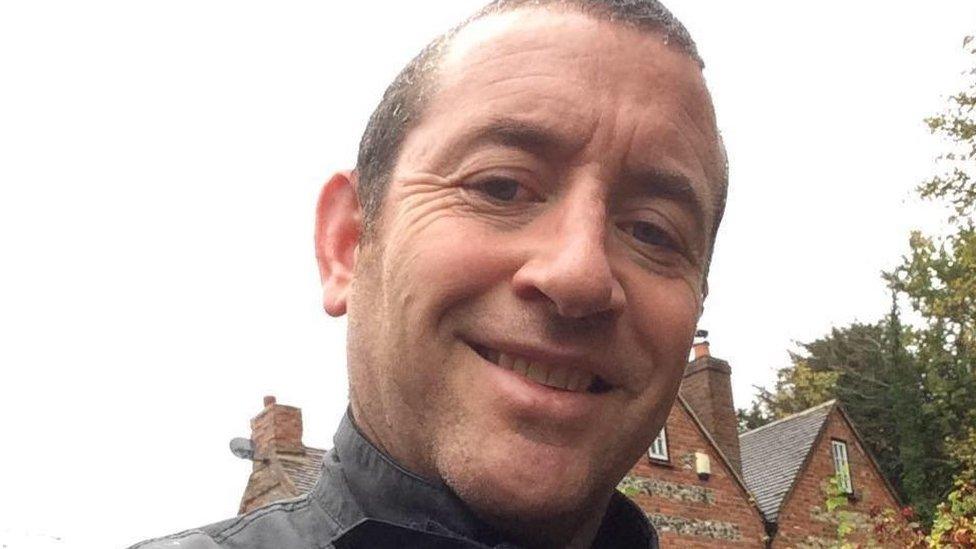Not all Police Scotland officers have vetting records
- Published

Not all Police Scotland officers have vetting records, a review has found.
An inspection by the police watchdog, external also revealed some officers and staff had not been vetted since they started their careers.
The force is now being advised to carry out an urgent review to make sure all of its officers and staff have been through the proper process.
His Majesty's Inspectorate of Constabulary in Scotland wants vetting to be repeated at least every decade.
Police Scotland's Deputy Chief Constable Alan Speirs said the safeguarding of the force's values and standards "has never been stronger" and that HMICS "rightly highlights the high standards of our vetting".
The convictions of Sarah Everard's killer Wayne Couzens and multiple rapist David Carrick led to a nationwide check of all police officers in the UK.
That process is still under way in Scotland, but in the meantime HMICS has found gaps in Police Scotland's vetting system.
They include:
No easily identifiable requirement for officers or staff to notify of any off-duty criminal conviction, offence or charge
No requirement to report relevant changes of circumstances, such as change of partner or change of address
No process for reviewing vetting clearance following misconduct
No system for the withdrawal or suspension of recruitment vetting.
HMICS is now calling for the Scottish government to introduce legislation which would allow Police Scotland's chief constable to "dispense with the service of an officer or staff member who cannot maintain suitable vetting".
It is also recommending "an annual integrity review" for all staff, to highlight issues such as convictions and misconduct.
A report on designated posts which require working with vulnerable people should be carried out "as a priority", according to the report.
The inspection followed the sacking of Met officer David Carrick in January after he pleaded guilty to 49 offences against 12 women over two decades.

David Carrick used his role as a Met police officer to put fear into his victims
Prime Minister Rishi Sunak said the 48-year-old officer's crimes were an "absolutely despicable" abuse of power which needed to be "addressed immediately".
Police Scotland then announced that it would now check all 22,000 staff against national databases.
The force said the move would "further enhance" its vetting measures.
Following publication of the latest report, HM Chief Inspector of Constabulary in Scotland Craig Naylor said effective vetting was "vitally important to assess a person's integrity".
He added: "There is no doubt the public's confidence in and the reputation of policing has been damaged by officers who have behaved inappropriately and broken the law.
"Significant steps have been undertaken following recent high profile cases in England to ensure that officers and staff have been checked and any risks identified, highlighted and managed appropriately.
"Vetting should not be viewed in isolation or as a standalone process and must be part of an overall system to identify and manage potential risks posed by officers and staff."
Additional checks
Deputy Chief Constable Alan Speirs said more than 5,000 officers and staff had been vetted to an enhanced level with annual reviews.
He added that the force would now ensure all roles "have the right clearance levels".
"We've invested to enable additional checks for new recruits before they are sworn into office and, working with staff associations and unions, we are introducing a programme of re-vetting," he said.
"We know the onus is on us to earn public confidence and will carefully review this report to identify any further improvements which can strengthen our vetting."
Cabinet Secretary for Justice and Home Affairs, Angela Constance, said: "It is vital the public have confidence in policing. Vetting is a key strand in providing that assurance and we welcome the work Police Scotland are already taking to address the review's recommendations.
"We are committed to exploring the legislative basis for vetting and are considering the report and all its recommendations."
The Police (Ethics, Conduct and Scrutiny) Scotland Bill introduced to Parliament earlier this year aims to further improve police complaint and misconduct systems and processes.


It's important to stress that the Inspectorate of Constabulary is not saying that these Police Scotland officers and staff were never vetted when they started their careers.
They would have been, when they joined one of the eight legacy forces that were replaced by the single national service in 2013.
The problem is, in some cases, there's no record to show that it happened and what was done.
Putting that uncertainty to one side, the force, inspectorate and the Scottish Police Federation all point to the extra checks that were ordered after Wayne Couzens killed Sarah Everard in London.
Police Scotland scrutinised the police national database to see if any of its 23,000 officers and staff had criminal convictions. Further checks were carried out in its internal systems and against a database of vulnerable persons.
The force, inspectorate and federation all say that exercise has not identified significant issues with any Police Scotland officers and staff and that that should reassure the public.